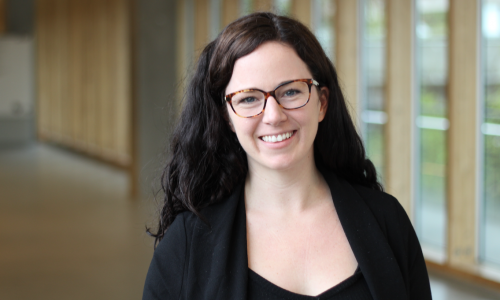
How many international students do you think are there in Canada? I bet you its more than you think. Let’s begin by putting it in dollars: international students contributed $12.8 billion to Canada’s GDP back in 2016. Which exceeds revenues generated from key Canadian exports such as lumber, auto parts, and aircrafts. In numbers, that is 494,525 students – six thousand of which walk the grounds of Simon Fraser university – each of us with a different story to tell.
Some of us came to Canada in search of refuge, some to explore the world, but most of us came here for one reason: to have a better shot at life. We separate ourselves from families and friends by thousands of miles in the hope that we will ultimately fare better than the people we left behind. All for the crazy idea that we might make it in a new country – with its foreign language, culture, and mindset. Now, your first thought might be that international students have it easy. After all, we are able to cough up three times the tuition local students pay. How hard could life be when we can afford such substantial tuition fees? The truth is, it’s not just about money.
The Pressure
Most international students are aware of our privilege. The ability to study abroad is a luxury that not everyone back home could afford. However, this investment in our education comes with a catch. When we decided to spend such an immense amount of money on education compared to our peers back home, we also took a lot on our shoulders. Our families, friends, and relatives all expect big things from us. You’d be surprised at the hostility and skepticism international students could face when searching for a job back home – people expect much more from us due to the amount of money we spent on our education. And if we fail to deliver, or live up to those expectations, things can get very ugly psychologically.

The Isolation
Many international students suffer from depression and isolation. We face significant pressure to succeed, so most of us are afraid to show that we are struggling to cope with the loneliness. To not be seen as weak or spoiled, we try to hide our fears and anxiety from friends and family. Our families spent a lot of money to give us this opportunity. So, expressing our doubts and complaints might come off as sounding ungrateful. To sum it all up, here’s what one of my interview subjects had to say about this topic:
“I don’t dare to tell my parents how homesick I actually am, and that I really miss the way things were back home. I can’t relate to the culture, mindset, and way of life here. But my parents have invested so much into my education, and I’m lucky enough to be here at all. I don’t have the right to complain. What will people back home think of me if I do?”
– Anonymous
Canadians embrace diversity and multiculturalism, a foundation that was laid by immigrants and international students. The appreciation events and services provided to international students serve as evidence of this claim. The amount of dollars that are pumped into programs geared towards helping international students is astounding. However, despite their best intentions, these programs raise a few other problems. Students that come from abroad are now expected to integrate and become a “part” of the Canadian society in a very short period of time. While simultaneously, we are subjected to skepticism from our own peers back home. The aid and resources that are available actually create pressure to integrate without taking into the fact that no amount of programs or counselling can fill the gap left by our family and friends back home.
“The hardest part about being so distant from my family isn’t just the fact that I have no one to ask me how my day was when I get home from a full day of work and school at 1 in the morning. What I find hard to cope with is that I’m no longer involved in family decisions.”
- Anonymous
We knew we would be missing out on significant milestones when we decided to take on the challenge of studying abroad. What we weren’t prepared for is the magnitude and significance of those events. The stories I’ve heard include friends going missing, close friends and family members becoming depressed and getting involved in drugs or gambling, younger siblings struggling with adolescence with no-one left to talk to, and much more. It’s incredibly frustrating to not be able to physically be there for someone you care about when they need you.

The Stereotypes
Perhaps the generalization that all international students are wealthy can be traced back to the extravagant lifestyles exhumed by some of our wealthy peers – but that stereotype is simply not the case for everyone. After interviewing multiple local Canadian students, the most common answer to my question: “Why do you think international students are often perceived as well-off financially?” was “because they are able to afford such a high tuition fee”. True, we do pay more than three times the amount local students pay for tuition. However, that doesn’t mean we had extra money sitting in our bank accounts and we’re just carelessly spending it. Most of our parents have been planning to send us abroad for years, if not decades. The financial resources are only available after a lengthy period of careful saving. Many of our parents have even sacrificed their pension funds or took out loans.
The Dilemmas
Moving to a country with a different social norms, values, and mindset is challenging – there’s no question about that. What is even more challenging, however, is the dilemmas some of us face when we settle down. It’s very easy to forget about who we are and the values we hold when we spend our formative years in an environment which encourages different – if not contrasting – principles and way of life. Should we adopt the mindset and way of life that will help us integrate into Canadian society? Or do we hold onto the values and tradition we were raised with? It’s easy to say that we need to find a balance, but how do we know if we’ve found the “balance”?
“What worries me is how well I am integrating into the Canadian society. I relate with the culture, mindset, and people much more than I did back home, and that scares me a lot. What happens if I have to go back home permanently in the future?”
- Anonymous
That is why some international students form a very tight and exclusive community only comprised of people from their own nation. For those of us who are not part of such communities and instead form relationships with people from around the world, it’s very easy to forget the fact that we might have to re-integrate back into our own society in the future. It is not uncommon for international students to go back home only to find that they are out of touch with their community and become depressed as they feel like they don’t belong anywhere.

Why Do We Put Ourselves Through This?
Because there’s a light at the end of the tunnel, and it all makes sense when we get what we came for: self-actualization. For those of us who succeed and survive the depression, isolation, and all the other hardships international students go through, the realization that we’ve become a better version of ourselves is simply indescribable.
“For myself, the realization came when I reflected upon how much I’ve changed since I said goodbye to everyone and boarded that red-eye flight to come here two years ago while crying my eyeballs out. I’ve done things I thought I was not capable of, I’ve achieved things that weren’t even on my parent’s wildest dreams, and I proved myself wrong. I can be better, and now I am”
– Anonymous
Can’t put it better myself.
Beyond the Blog
-
Connect with SFU Health and Counselling
-
International Services for Students offers a variety of programs, services, and supports for students from international pathways.















